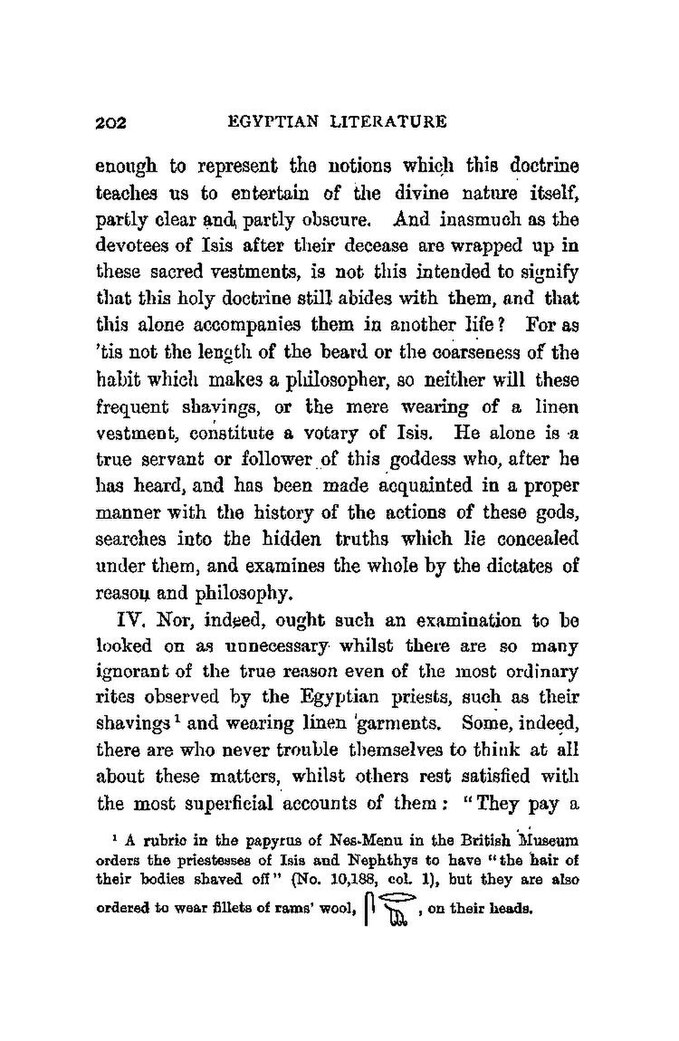enough to represent the notions which this doctrine teaches us to entertain of the divine nature itself, partly clear and partly obscure. And inasmuch as the devotees of Isis after their decease are wrapped up in these sacred vestments, is not this intended to signify that this holy doctrine still abides with them, and that this alone accompanies them in another life? For as ’tis not the length of the beard or the coarseness of the habit which makes a philosopher, so neither will these frequent shavings, or the mere wearing of a linen vestment, constitute a votary of Isis. He alone is a true servant or follower of this goddess who, after he has heard, and has been made acquainted in a proper manner with the history of the actions of these gods, searches into the hidden truths which lie concealed under them, and examines the whole by the dictates of reason and philosophy.
IV. Nor, indeed, ought such an examination to be looked on as unnecessary whilst there are so many ignorant of the true reason even of the most ordinary rites observed by the Egyptian priests, such as their shavings[1] and wearing linen garments. Some, indeed, there are who never trouble themselves to think at all about these matters, whilst others rest satisfied with the most superficial accounts of them; "They pay a
- ↑ A rubric in the papyrus of Nes-Menu in the British Museum orders the priestesses of Isis and Nephthys to have "the hair of their bodies shaved off" (No. 10,188, col. 1), but they are also ordered to wear fillets of rams' wool,
, on their heads.


